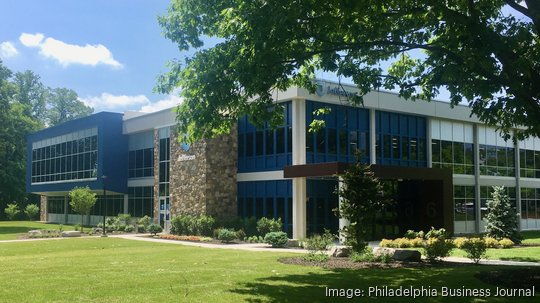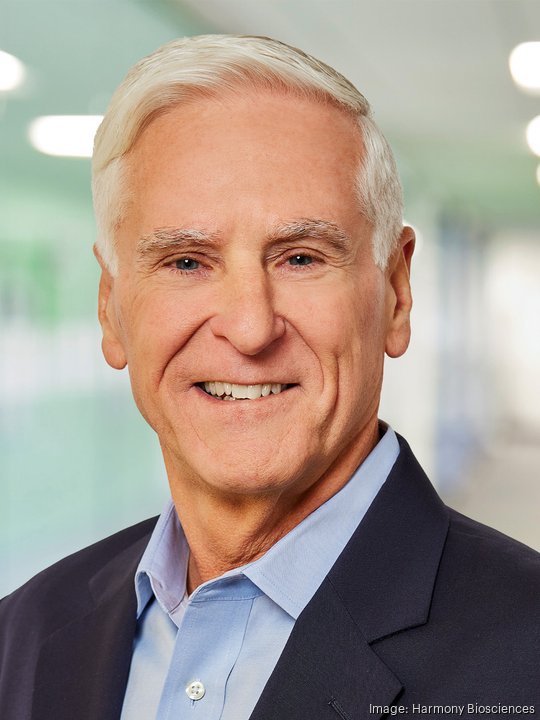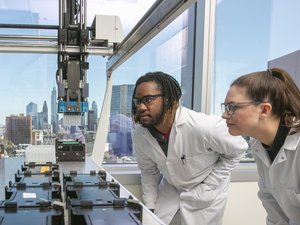
This week's life sciences industry news includes items on a bioprocessing institute's expansion plans, a $12 million stock sale, a CEO losing his interim tag, a Parkinson's disease research advancement, and more.
Here's the roundup:
Jefferson
The Jefferson Institute for Bioprocessing in Lower Gwynedd is adding pilot-scale production of cell and gene therapy materials for early stage clinical testing.
The institute in the Spring House Innovation Park is adding four additional clean rooms to the site in a project expected to be completed early this summer.
Jefferson declined to provide specific cost details for the expansion, saying only it is a multimillion-dollar project.
“This [expansion project] will allow [the institute] to serve clients from pre-clinical process development and process optimization through scale-up and early clinical production,” said Parviz Shamlou, executive director of the Jefferson Institute for Bioprocessing.
The institute, which has a staff of nine, already offers process and analytical development services to the cell and gene therapy market. With the expansion, the institute is expected to double its workforce and add 10 new positions by the end of 2024.
The 25,000-square-foot institute opened in 2019 in the space previously occupied by Rohm & Haas. It was established in a partnership with the National Institute for Bioprocessing Research and Training (NIBRT), which is based in Dublin, Ireland.
Windtree Therapeutics
The Warrington biotechnology company raised $12.4 million in a public stock offering.
Windtree (NASDAQ: WINT) sold nearly 3.7 million shares of its common stock, along with one warrant to purchase one share of common stock at a combined public offering price of $2.93 per share. The warrants have an exercise price of $2.93 per share, are exercisable immediately, and will expire in five years.
The company intends to use up to $3.5 million of the net proceeds from the offering to extend enrollment and complete a Phase 2 clinical trial for istaroxime, its experimental treatment for cardiogenic shock. The remainder of the proceeds will be used for working capital and other general corporate purposes.
Ladenburg Thalmann & Co. Inc. served as the sole book running manager for the offering.
Harmony Biosciences
After serving as the Plymouth Meeting pharmaceutical company's interim president and CEO since the start of the year, Dr. Jeffrey M. Dayno now has the job on permanent basis.
Dayno, who is also now a member of the company's board of directors, joined Harmony (NASDAQ: HRMY) as chief medical officer and executive vice president when the company was founded in 2017. He was named interim president and CEO Jan. 6 after the departure of John C. Jacobs, now CEO of Maryland-based Novoavax (NASDAQ: NCAX).

"Dr. Dayno has been an influential leader since day one," said Harmony Chairman Jeff Aronin. "The board unanimously appointed him president and CEO because it firmly believes in his vision for ongoing strong growth in critical areas of the business. We believe he will continue to expand the Wakix franchise in narcolepsy, pursue new indications for patients and advance the pipeline of new assets."
Harmony's profits jumped to $181.5 million last year from $34.6 million in 2021, according to year-end financial results the company released Tuesday. Sales of Wakix increased 43% to $437.9 million, up from $305.4 million the year prior.
Penn Medicine
Research at the University of Pennsylvania working with the Parkinson’s Progression Markers Initiative and Michael J. Fox Foundation has confirmed a technique that is highly accurate at identifying Parkinson’s disease patients, and classifying them based on genetic and clinical markers.
The study's finding, published in The Lancet Neurology, suggest that the test can identify at-risk people and those with early, non-motor symptoms prior to diagnosis. The researchers believe the discovery could, in the future, "support a framework" for early detection and prevention of Parkinson's disabling motor symptoms, like tremors.
“This research is a step forward for understanding the different pathologies of Parkinson’s disease,” said Dr. Andrew Siderowf, a professor of neurology in the Perelman School of Medicine at the University of Pennsylvania and director of Penn’s Parkinson’s Disease and Movement Disorders Center. “Going forward, we will be able to use the test to connect patients with the most promising clinical trials based on their underlying biology."
Siderowf said findings could in the future form the basis for personalized medicine for Parkinson’s disease.
Quick Hits
Vyant Bio (NASDAQ: VYNT) of Cherry Hill said it is voluntarily delisting its stock from the Nasdaq exchange through a process that is expected to become effective May 14. The biotech company has been focused on using biology and data science to improve drug discovery for neurodevelopmental and neurodegenerative disorders. The Vyant board said its decision to delist was based on several factors including the expected reduction in operating expenses by eliminating SEC reporting costs, which would allow the company to focus more resources on its continued pursuit of "strategic alternative transactions" or an orderly wind down of the company, if necessary. Following the NASDAQ delisting, Vyant anticipates that its common stock will be quoted on the Pink Open Market operated by OTC Markets Group Inc. under the symbol “VYNT” in mid-May. … Malvern-based Baudax Bio (NASDAQ: BXRX) announced positive results from Phase 2 testing of BX1000, its neuromuscular blockade for patients undergoing elective surgery. All 80 patients in the study met the study's primary endpoint of readiness for intubation, with an evaluation of good or excellent at 60 seconds, at all dose levels assessed. Baudax said it is on track to find a new drug application for BX1000 by the of 2025.







